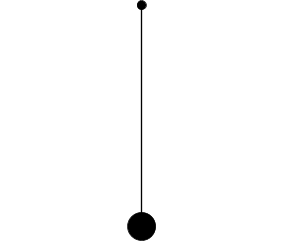Our mind is conditioned, said Bhante. This conditioned mind will always judged things to be good or bad, right or wrong. Therefore, one is confused about facts and opinions.

The conditioned mind is the second link in Dependent Origination that is sankhara. Because of A, B followed, just like what happened to the dog in Pavlov's Experiment.
Our mind like a pendulum, always swinging from the past to the future. Our mind begins to judge because we conditioned it to judge, to judge things to be yes or no.
What then conditioned our mind? It is our thoughts. Our thoughts also identify. We use our thoughts to identify things with another things for example we sometimes identify happiness with wealth or success. But sometimes we did not identify thing with the truth.
For instance, we identify self or ego with thought. Thoughts conditioned us, and we think that these thoughts are our self.
Since awakened from our sleep, we live in the realm of thought. We get lost in our thought.
Our mind is full of thoughts. It is always yes or no. This then gives rise to attraction (if it is a yes) and repulsiveness if it is a no.

Because we are always thinking (eating, walking and so forth), we identify it as our ego. And what give rise to thought? Bhante said it is ignorance that causes thought to arise.
So our thoughts kept on talking in ourselves; we have a chattering mind, and we will not have any peace. Thought swings from the past to the future. Our ego cannot let go of the past. The thought condition us.
How then can we stop ourselves from thinking? Awareness is the answer.
 We have to aware, not to know, not to think. In meditation, we are aware of the object at the present. To have our mind at the present, not to think of the past or the future. Thus we are aware of ourselves.
We have to aware, not to know, not to think. In meditation, we are aware of the object at the present. To have our mind at the present, not to think of the past or the future. Thus we are aware of ourselves.Bhante said we know but we do not know our selves ("chai e'ay, bo chai lan" in Hokkien). We have the sense doors to know other things outside of ourselves but we do not know inside ourselves.
I have always find Bhante's talk to be enlightening as Bhante is able to explained abhidhamma things in a layman terms.
Sadhu, sadhu, sadhu.

No comments:
Post a Comment